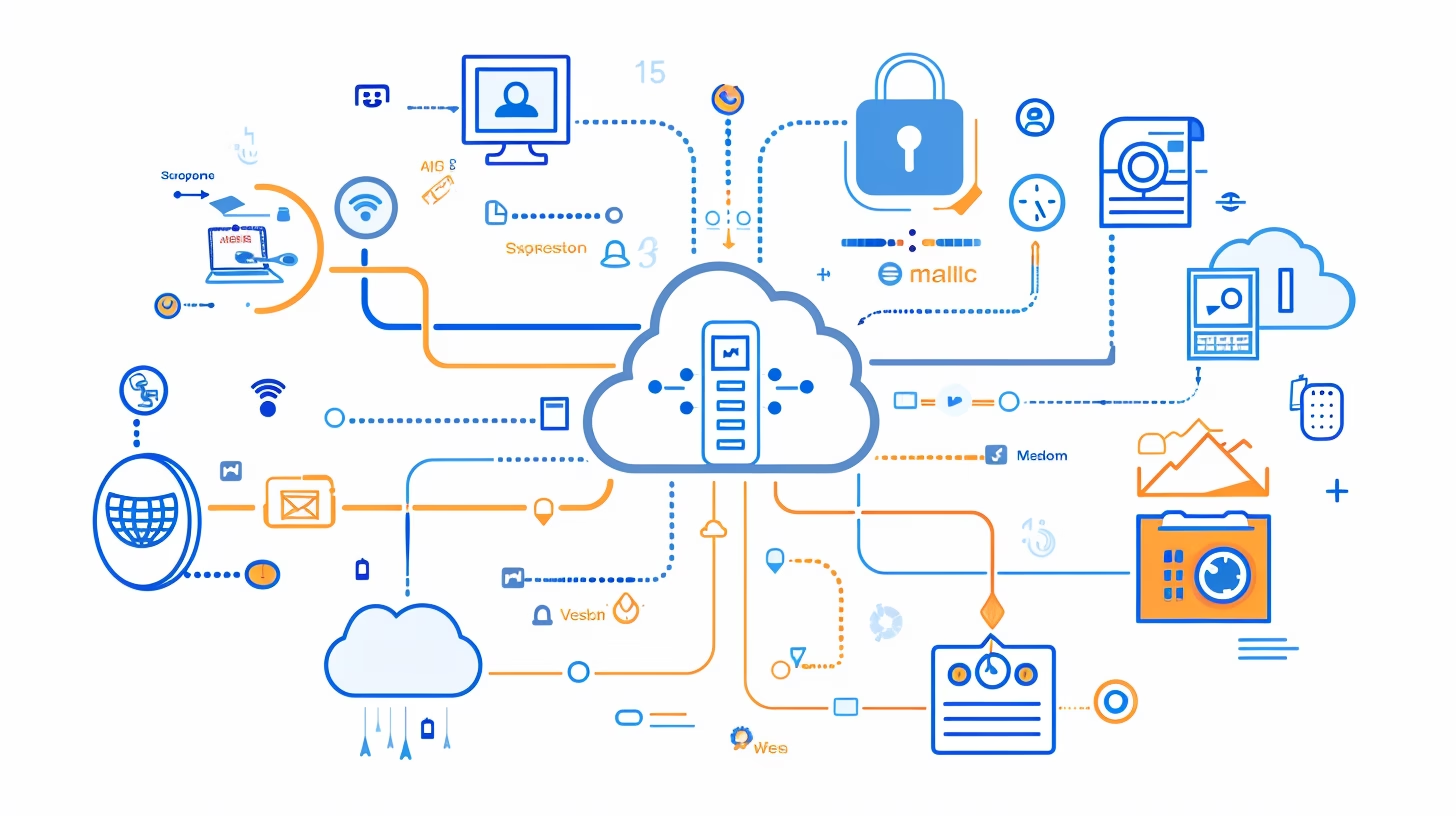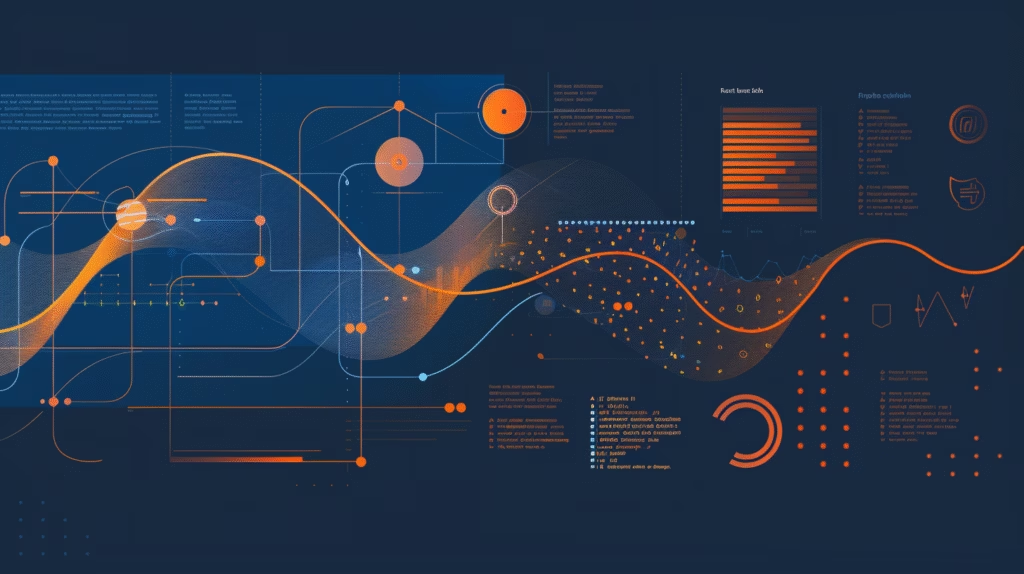A client calls with a time-sensitive request. Days later, your team can’t agree on what was discussed or promised. Without a clear record, you risk delays, compliance issues, and frustrated customers.
Without that record, you can face compliance violations, lose valuable context, and struggle to resolve disputes. Call recording fixes this by keeping a secure, searchable record of every conversation—so you can meet compliance requirements and adhere to compliance laws, check service quality, and resolve issues quickly.
As organizations move from legacy phone systems to unified communications platforms and cloud-based VoIP, the need for accessible, dependable call recording has only increased. In many companies, recorded calls are the basis for coaching sessions, compliance audits, and even product feedback loops. It’s more than a record—it’s a working tool for service and risk teams.
In fact, 81% of high-growth companies leverage sales call recordings to analyze calls and improve performance. Unified communications make it simple to store, review, and manage recordings from any location—delivering peace of mind that every customer conversation is documented and protected. Call recording covers all phone conversations, including outbound calls and incoming calls, ensuring every interaction is captured for compliance and service quality.
What Is Call Recording?
Call recording captures conversations from phone, video, or digital channels and stores them securely for when you need them. Companies depend on call recording to document agreements, resolve disputes, and meet compliance standards.
By saving accurate records, organizations gain peace of mind and support quality assurance goals.
Types of Call Recording
Call recording is particularly valuable in regulated industries such as healthcare, legal, and financial services. In these settings, recording calls can help meet record-keeping requirements and support legal and regulatory compliance, protect sensitive conversations, and maintain audit trails. Compliance recording is essential for adhering to industry-specific regulations like HIPAA, PCI-DSS, GDPR, and Dodd-Frank, providing legal protection and ensuring organizations meet regulatory obligations. Customer service teams use recordings to review interactions, improve training, and ensure consistency.
Managers use recorded calls to settle complaints with proof and keep tabs on team performance. Additionally, research from sales performance studies shows that sales representatives who actively engage customers with questions, as identified through conversation analysis, may achieve significantly higher closing rates —in some studies around 25%— compared to those who don’t.
- Automatic recording saves every call by default; an automatic call recorder enables this feature for both incoming and outgoing calls
- Manual recording allows users or managers to select calls to record
- On-demand recording starts or stops during a live conversation
- Bulk recording manages large-scale capture across multiple lines or departments
- Random sampling records a set percentage (for example, 20%) of calls to provide a representative sample of conversations across teams or individuals
Why Businesses Use Call Recording
A well-set-up call recording system gives you proof when you need it, lowers risk, and helps you keep improving. With secure storage and clear access controls, businesses keep sensitive data, including customer data, safe while meeting industry regulations.
Recording calls unlocks the ability to coach employees, monitor service quality, and build trust with clients. Many businesses record phone calls to review conversations, ensure legal compliance, and improve customer service. Companies implementing call recording solutions have reported revenue increases —in some cases averaging around 15% within the first year— though results vary by industry and implementation.

How Call Recording Works in Modern VoIP and Contact Center Systems
Call recording within modern VoIP and contact center systems has become an essential part of ensuring business reliability, compliance, and service quality.
With unified communication platforms powered by cloud technology, organizations capture and manage calls in ways that support both daily operations and long-term goals.
How Calls Are Captured and Stored
Cloud-based VoIP systems record calls by intercepting audio at the network or application level. This process can happen automatically for all calls, or administrators can set up specific rules to capture only certain lines or users, including the ability to record incoming calls as needed.
Once a call is recorded, the system uses automatic phone call recording features to encrypt the audio file and store it securely in the cloud or, if required, on-premise servers. This centralization means your business can retrieve recordings from anywhere, with proper credentials, on any connected device.
Access, Retrieval, and Advanced Features
Authorized users access and playback recordings through web portals or integrated communication dashboards. Built-in search lets you find calls by date, user, customer name, or keyword.
Today’s systems can transcribe call recordings, flag customers who sound frustrated or pleased, based on sentiment analysis algorithms, and scan conversations for keywords that signal a compliance or sales opportunity—all without manual review.
These tools turn call data into clear next steps for managers and QA teams.
Security, Retention, and Integration
Security remains a top priority. The best systems use strong encryption both in storage and when data moves between devices, protecting customer data from unauthorized access. Detailed retention policies let organizations keep recordings only as long as needed for compliance, then automatically delete or archive them. Access controls ensure that only authorized employees can review sensitive conversations, maintaining privacy and trust.
Cloud recording also supports seamless integration with CRM and analytics tools. This makes it easy to link call data with customer profiles, automate compliance checks, meet compliance laws through proper retention and reporting, and create audit-ready reports. Compared to on-premise call recording, cloud solutions offer greater flexibility, support distributed teams, and minimize the need for costly hardware upgrades.
With these safeguards, compliance can pull up any call in minutes, and managers can catch training needs early.

Implementing Call Recording Across Devices and Platforms
Modern businesses rely on call recording across all types of devices, not just traditional desk phones. Today’s work environment includes VoIP desk phones, desktop softphones, and mobile devices, each with unique features and requirements. Setting up call recording across these platforms ensures your team captures important conversations wherever work happens.
VoIP Phones and Desktops
Most VoIP business phone systems include built-in call recording. Administrators can enable recording for specific users or departments within an online portal, giving you control and flexibility. Whether employees use a desk phone, a desktop softphone, or a unified communications app, calls can be recorded automatically or on-demand, with recordings stored locally or in the cloud for easy access and review.
Mobile Devices and Remote Work
Remote and hybrid work environments demand call recording solutions that operate seamlessly across all endpoints—no matter where employees work. With modern UCaaS and VoIP platforms, call recording happens directly within the unified communications system.
This means you don’t need extra mobile apps or to worry about which OS your team uses—every conversation, whether on a desk phone, softphone, or browser-based app, is captured and managed in the cloud under a single set of policies. These solutions are compatible with both Android and iPhone devices, allowing users to record calls directly from the built-in phone app.
Unified platforms empower administrators to set rules, automate notifications, and ensure consistent compliance across remote teams and home offices. Users can simply tap to activate recording features on their devices. All recordings remain securely stored in one central location, protected by strong encryption and access controls.
This centralized management makes it easy to enforce retention policies, support audits, and meet regulatory requirements—even as your team works from multiple locations.
For businesses navigating data privacy laws or industry-specific regulations, such as HIPAA in healthcare, UCaaS and VoIP solutions offer detailed consent features, audit trails, and granular permissions to ensure any recorded calls containing protected information are stored and accessed securely.
That way, you stay compliant, protect sensitive info, and give remote teams the same security you use at HQ—delivering peace of mind and regulatory confidence wherever your employees log in.
Best Practices and Troubleshooting
For success across platforms:
- Choose call recording apps that work with your devices and operating systems.
- Train staff to notify callers and follow privacy rules, especially outside the office. Make sure new agents and agents are trained to use call recording tools effectively.
- Check integration settings to avoid compatibility issues with existing business tools.
- Test your setup regularly to confirm all endpoints are recorded as intended.
Troubleshooting common problems starts with checking software updates, ensuring the recorder app is up to date and properly configured, reviewing permissions, and ensuring the right configurations in your admin portal.
Most issues resolve quickly with help from your IT team or your provider’s support resources. By covering each device and platform, your business gains peace of mind, protects compliance, and creates a complete record of your customer interactions.
Choosing the Best Call Recording Solution for Your Business
Choosing a call recording system starts with your goals and your industry’s compliance rules. Many organizations must balance regulatory needs with ease of use, access, and long-term scalability. The right choice helps you protect sensitive data, streamline operations, and support growth without adding complexity.
Key Features to Prioritize
Before making a decision, focus on these critical features:
- Compliance tools, including consent notifications and audit trails
- Scalability that supports teams of any size, in one location or many
- Simple access to recordings and straightforward management tools
- Seamless integration with CRM, analytics, and workflow platforms
A system with these features helps you adapt fast, manage records with confidence, and cut manual work.
Comparing Solutions and Evaluating Fit
Standalone call recording apps may offer specialized features for niche needs. Some solutions include an automatic call recorder or a recording app, allowing for both automatic and manual recording of calls. However, they often create data silos or require extra effort to integrate with other business systems.
Integrated unified communication platforms provide centralized management, better security, and easier access to recordings across channels like voice, video, and chat.
Healthcare organizations need compliant storage and strict access controls. Financial services teams look for PCI and SOX support, while legal firms require solutions that deliver eDiscovery-ready archives. Review how each vendor handles these requirements before moving forward.
Ask for a demo and make sure it works for your team’s daily routines. Ask about security certifications, onboarding support, and clear documentation. A strong vendor will help you map features to your business needs, remove obstacles, and deliver a reliable user experience.
Choosing the best call recording solution sets the stage for stronger compliance, better service, and easier management as your business grows. Take time to compare options and invest in the tools that provide flexibility, security, and future-ready support.
Leveraging Call Recordings for Training, Quality, and Customer Service
Call recordings can be a springboard for improving how your business works, from onboarding to ongoing service enhancement. When managed well, they turn each customer interaction into a learning and quality assurance opportunity. By being able to hear recorded calls, managers and staff can identify areas for improvement and enhance service quality. Centralized, secure storage ensures recordings remain accessible to authorized team members while protecting sensitive information.
Improving Employee Training and Coaching
Real-world examples from call recordings give teams practical guidance they can apply right away. Supervisors can highlight strong communication techniques or pinpoint recurring issues for targeted coaching. New hires benefit from listening to successful calls, which accelerates their ability to handle customer inquiries with confidence. Reviewing calls regularly makes learning part of your team’s routine.
Driving Quality Assurance and Service Excellence
Quality assurance teams use call recordings to monitor adherence to scripts, identify service gaps, and score performance objectively. Consistent review helps you catch small issues before they become problems for your customers. By integrating call recordings with CRM and analytics tools, you gain a complete view of customer journeys and team performance. Automated tools flag compliance risks, track resolution timelines, and maintain a detailed audit trail.
Best practices for leveraging call recordings include:
- Using a centralized archive with strong security controls
- Creating regular coaching sessions based on real interactions
- Running quality programs that focus on measurable service improvements
- Linking recordings to CRM profiles for actionable insights
- Automating compliance workflows and ensuring audit readiness
If you manage recordings well, they’ll keep helping your business improve. They help you meet regulatory requirements, document best practices, and deliver a better customer experience every day. With the right approach, call recording can go from a compliance checkbox to a driver of growth, better teams, and happier customers.
Secure, Integrated Call Recording: The Advantages of TechmodeGO
TechmodeGO gives your business a unified platform for secure, compliant call recording across every device and location. All recordings stay protected in the private cloud with strong encryption and access controls.
Built-in AI features, including call recording transcription and sentiment analysis, help your team respond quickly and improve service quality. Centralized management lets you monitor, access, and audit all call data with ease.
Personalized onboarding ensures a smooth start, and dedicated U.S.-based support means expert help when you need it. Flexible deployment adapts to healthcare, finance, legal, and any regulated environment. TechmodeGO keeps call recording simple and secure, so you can focus on service, stay compliant, and grow without the tech headaches.

See What Smarter Call Recording Looks Like in Action
Link every recorded call or transcript to your customer records so your team can resolve issues faster, personalize service, and document compliance in one place. Start by reviewing your current call processes and identifying gaps in quality, compliance, or efficiency. Techmode offers a tailored consultation to guide you through options that align with your industry needs.
Experience a live product demo and see how unified call recording can drive measurable improvements. With proven security, U.S.-based support, and deep expertise in regulated industries, Techmode helps you move forward confidently.
Ready to transform your communications workflow? Connect with Techmode today for a personalized plan that supports your team, protects sensitive data, and delivers consistent results.
Review your current call setup and identify gaps in compliance, quality, or efficiency—then see how an integrated recording solution can close them.
Frequently Asked Questions
What is call recording and how does it work in cloud-based communication systems?
Call recording securely captures phone conversations—whether they happen over the phone, in a video meeting, or through another digital channel—and stores them for future reference. In a cloud-based setup, recordings are encrypted, automatically saved to secure data centers, and linked to a searchable file for easy retrieval. Authorized call participants can listen to or play recordings through a unified communications dashboard or secure web portal, eliminating the need to manage on-site storage or hardware.
How can businesses implement call recording across VoIP and mobile devices?
With modern UCaaS and VoIP platforms, the recording feature can be activated for any endpoint—desk phones, softphones, or mobile devices—through a single administrative portal. From there, you can apply policies to specific teams, departments, or important calls such as those related to contracts, compliance, or customer escalations. This ensures you record phone calls consistently, no matter where work happens. Built-in tools help you manage retention schedules, access permissions, and consent notifications (required in most states) so you stay compliant with industry regulations from day one.
What features should organizations look for in a call recording system?
The right recording software depends on your compliance environment and operational goals. Common must-haves include:
- Encrypted storage and secure access controls
- Consent management and audit trails for regulatory readiness
- CRM and analytics integrations to make recordings actionable
- Scalability to support teams across multiple locations
- Multi-channel recording capabilities, including not just voice but also webchat, SMS/MMS, and other digital channels
- An intuitive interface that makes it easy to start or stop recordings when needed
A platform that blends compliance with usability will give you the best return—reducing admin work while keeping your files and data protected.
How does call recording improve customer service and employee performance?
For customer-facing teams, recordings are an invaluable coaching tool. Managers can listen to important calls to pinpoint communication strengths, identify training opportunities, and resolve disputes quickly with documented evidence. This consistency not only raises service quality but also builds trust with customers, reduces employee stress by clarifying expectations, and supports services like quality assurance and compliance reviews.
What are the best practices for managing call recordings for training and service improvement?
Centralize your recordings in a secure archive and control access based on roles. Use them in regular training and quality assurance sessions, pairing real-world examples with targeted feedback. When integrated with analytics, recordings can highlight service trends, measure performance against KPIs, and surface opportunities for operational improvements. The best recording software lets you play back calls instantly, tag them by topic or outcome, and easily share relevant files with authorized team members. This approach turns compliance-driven recordings into a driver of team growth, improved services, and better customer experiences.









